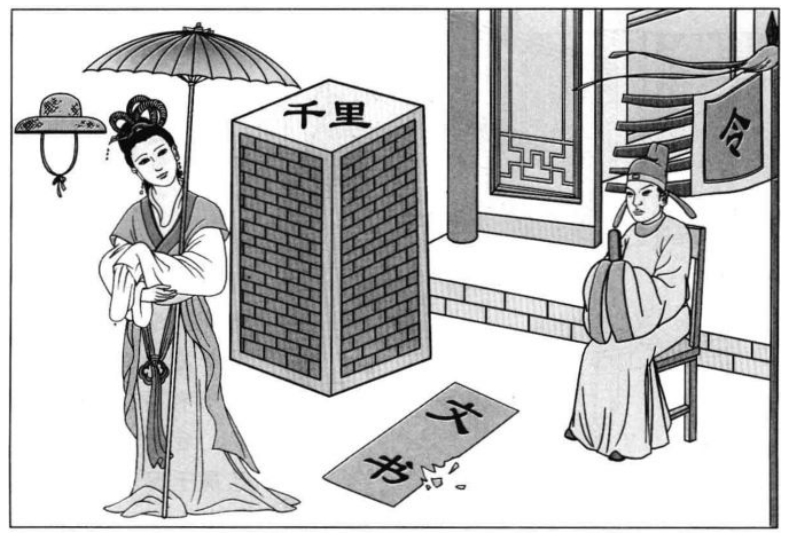最新住楼房风水,住楼房风水讲解,周易网推荐风水,选择合适的楼层和朝向至关重要。在风水学中,楼层的选择需考虑气场流通与能量分布。低层住宅容易受到地面湿气影响,而高层则可能遭受强风冲击。理想楼层应在中间偏上,既可避免底层潮湿,又能减少高处风力的影响。
朝向方面,南向房屋因阳光充足而备受推崇,可使室内保持温暖干燥。西向房屋虽光照强烈,但午后阳光会带来热量,适合冬季。东向房屋早晨阳光明媚,空气清新,适合追求健康生活的人群。北向房屋则光线较弱,适合喜欢安静阴凉环境的人士。
除了楼层和朝向外,房间布局也需遵循风水原则。主卧室应位于较为私密的位置,远离大门和楼梯。床头不宜正对房门,以免形成“枪煞”之气。书桌宜设于窗边,以获取自然光,促进学习和工作。厨房和卫生间要保持清洁干燥,避免湿气和秽气蔓延至其他区域。
阳台和窗户是室内与室外交流的重要通道,应保持通畅,以利于气流循环。植物可以净化空气,增加生气,但不宜过多,以免造成拥堵。挂画和装饰品也能调节气场,如山水画能带来平和宁静,花卉图案则能增添活力。
总之,住楼房风水讲究内外兼修,既要注重整体布局,又要关注细节处理。遵循这些基本原则,不仅能让居住环境更加舒适和谐,还能提升家庭运势,带来好运。,

住楼房风水是中国文化中一个重要的传统观念,被认为与人们的命运和幸福密切相关。在现代社会,人们对住宅风水的关注依然很高,很多人选择住房时会考虑风水的因素。本文将以客观、专业、清晰和系统的方式讲解住楼房风水相关知识。
一、住楼房风水的定义
住楼房风水是通过对住宅环境、结构、布局、装修等因素的研究,以及八卦、五行等理论为基础,通过调整和改善住房的能量场,达到促进人们财运、健康、家庭和谐等目的的一门学问。
二、住楼房风水的分类
1. 坐向风水:坐向风水是指住房的朝向和地理位置与周围环境相互关系的研究。阳光充足、通风良好、与自然环境和谐相处的住房被认为具有良好的坐向风水。
举例:南向住房在北半球被认为是较为吉利的坐向,因为南方阳光更充足,能够带来温暖和生机。
2. 户型风水:户型风水研究的是住房的内部空间布局,以及各个房间的功能分区和摆放等因素。合理的户型风水可以提高住房的舒适度和能量流动。
举例:客厅是住房的主要活动区域,应该宽敞明亮,起到聚气、接纳家人和来宾的作用,而卫生间则应该与卧室隔离开来,以避免财运的流失。
3. 装修风水:装修风水是指住房的装修材料、颜色、布局等方面的选择和搭配。合理的装修风水可以提升住房的能量场,并增加居住者的运势。
举例:在装修中,应尽量避免使用过暗或过亮的颜色,同时注意颜色的搭配,以营造舒适宜人的居住环境。
4. 营造风水:营造风水是指通过住房周围的环境绿化、水池、花园等方式来改善住房的能量场。良好的营造风水可以增加住房的气场和生机。
举例:住房周围的花园或绿化带应该布置得井然有序,不仅美观,还能吸纳自然能量,提升住房的风水能量。
三、住楼房风水的比较
1. 纸上谈兵风水:纸上谈兵风水是指只停留在理论层面,没有具体实践和调整的风水观念。这种风水观念缺乏实证和科学性,有时会误导人们的判断。
2. 实践应用风水:实践应用风水是指在实际住房中根据风水理论进行调整和布置的风水观念。通过实践应用风水可以改善住房的气场,提高居住者的运势。
比较:实践应用风水相比纸上谈兵风水更加科学可行,能够根据个体情况进行调整和改良,以实现更好的效果。
通过本文的讲解,我们了解到住楼房风水是一个包含坐向、户型、装修和营造等多个方面的学问。科学地应用住楼房风水可以提高住房的能量场,为居住者带来好运和幸福。在选择住房和进行布置时,我们可以了解并应用相关的风水知识,以实现更好的居住效果。
住楼房风水学

住楼房风水学是一门独具特色的古老学科,旨在通过布局、设计和装饰来影响居住者的运势和生活质量。本文将介绍住楼房风水学的定义、分类、举例和比较,以便读者能够全面了解这一领域的相关知识。
风水学是一门研究自然环境与人类生活关系的学科,住楼房风水学是其中的一个重要分支。在住楼房风水学中,根据房屋的建筑、方位、门窗、内部布局等因素,来分析居住者的财运、健康和人际关系,以及居住环境的安宁和和谐程度。通过合理的布局和设计,可以改善居住者的居住环境,提升幸福感和生活质量。
住楼房风水学可以根据房屋的方位来进行分类。根据风水学家的观点,不同的方位有不同的能量场,进而影响着居住者的运势。朝南的房屋会吸引阳光和温暖,被认为是吉利的选择。相反,朝北的房屋则更容易受到寒冷和阴暗的影响,被认为不利于居住者的财运。
住楼房风水学还可以根据房屋的门窗来进行分类。门窗作为房屋的出入口和通风口,在住楼房风水学中具有重要的意义。正门的位置和方位对居住者的运势起着重要的影响。大门的位置应当宽敞明亮,不与直接对门相对,以避免财运外泄。正确选择和布置窗户也是影响居住者运势的关键因素之一。
住楼房风水学还可以根据房屋的内部布局来进行分类。不同的房间功能和位置在住楼房风水学中有不同的要求。卧室被认为是居住者休息和恢复精力的地方,应该位于房屋的安静位置,远离厨房和卫生间的煞气。客厅被认为是家庭社交的重要场所,应该明亮宽敞,并与餐厅等其他功能区域合理连接。
住楼房风水学通过布局、设计和装饰等手段来调整房屋的能量场,影响居住者的运势和生活质量。通过对方位、门窗和内部布局等因素的合理利用,可以增加居住者的财运、健康和幸福感。住楼房风水学作为一门古老而神秘的学科,值得我们深入研究和探讨。
Living in a high-rise building and the study of feng shui
Introduction:
The study of feng shui is an ancient and unique discipline that aims to influence the fortune and quality of life of residents through the layout, design, and decoration of their living spaces. This article will introduce the definition, classification, examples, and comparisons of the study of feng shui in high-rise buildings, in order to provide a comprehensive understanding of the relevant knowledge in this field.
Body:
Feng shui is a discipline that studies the relationship between the natural environment and human life. The study of feng shui in high-rise buildings is an important branch of this discipline. In the study of feng shui in high-rise buildings, factors such as the architecture, orientation, doors and windows, and interior layout of the building are analyzed to study the financial fortune, health, and interpersonal relationships of the residents, as well as the tranquility and harmony of the living environment. Through proper layout and design, the living environment of residents can be improved, enhancing happiness and quality of life.
Firstly, the study of feng shui in high-rise buildings can be classified based on the building’s orientation. According to feng shui practitioners, different orientations have different energy fields, which in turn influence the fortune of the residents. For example, south-facing buildings attract sunlight and warmth and are considered auspicious choices. In contrast, north-facing buildings are more prone to cold and darkness, which is believed to be unfavorable for the financial fortune of the residents.
Secondly, the study of feng shui in high-rise buildings can also be classified based on the doors and windows of the building. Doors and windows, as the entrances and ventilation points of the building, are of great significance in the study of feng shui in high-rise buildings. For example, the position and orientation of the main entrance have a significant impact on the fortune of the residents. The main entrance should be spacious and bright, and not directly facing another entrance to avoid the leakage of financial fortune. Additionally, the correct selection and arrangement of windows are also key factors that affect the fortune of the residents.
Furthermore, the study of feng shui in high-rise buildings can also be classified based on the interior layout of the building. Different rooms and their positions have different requirements in the study of feng shui in high-rise buildings. For example, the bedroom, considered as a place for rest and rejuvenation, should be located in a quiet area of the building, far away from the negative energy of the kitchen and bathroom. The living room, regarded as an important place for family socializing, should be bright and spacious and properly connected with other functional areas such as the dining room.
Conclusion:
In conclusion, the study of feng shui in high-rise buildings adjusts the energy fields of the building through layout, design, and decoration, influencing the fortune and quality of life of the residents. By making proper use of factors such as orientation, doors and windows, and interior layout, the financial fortune, health, and happiness of residents can be enhanced. The study of feng shui in high-rise buildings, as an ancient and mysterious discipline, is worth further exploration and research.
Word count: 536 words
住楼房风水讲解

住楼房风水是中国古老的传统文化,讲究着居住环境对个人运势的影响。本文将客观、专业、清晰和系统地阐述住楼房风水相关的知识,通过定义、分类、举例和比较等方法,帮助读者了解住楼房风水的重要性和实际应用。
一、住楼房风水的定义与意义
住楼房风水是指以山水地理、气场环境等因素为依据,通过布局、摆设、装饰等手段,来影响人居环境,调整居住者的气场和运势。它追求的是人与自然之间的和谐与平衡,以及居住者生活的顺遂和幸福。
二、住楼房风水的分类
1. 外部环境风水
外部环境风水是指楼房所处的地理位置、地形地势、水源等因素对居住者运势的影响。选择居住地时应避开高压线、高架桥等电磁辐射强的地方,选择地势高而开阔的地方。
2. 内部布局风水
内部布局风水是指楼房内部的房间、门窗、家具等摆设布局对居住者气场的影响。起居室的布局应以舒适为主,床的方位应避免朝向厕所和厨房等不利于休息的地方。
3. 装饰摆设风水
装饰摆设风水是指居住房内的装饰品、植物等物品对居住者心境和运势的影响。选择具有积极寓意的装饰品,如富贵花卉和画有吉祥寓意的图案。
4. 寓意与风水
寓意与风水是指房屋的设计和命名中蕴含的文化与象征意义对居住者运势的影响。许多人喜欢在房子的门面上镶嵌“龙凤呈祥”或者“富贵吉祥”等吉祥寓意的字样和图案。
三、住楼房风水的举例
1. 外部环境风水举例
某个人选址时,选择位于山谷之间、山势平缓的地方,可以有效避免狂风暴雨等自然灾害,有利于居住者的安全和稳定。
2. 内部布局风水举例
居住房内,阳台的位置应选择在阳光充足的一侧,这样可以增加阳光的照射,提高室内采光,对居住者的健康和心情有积极影响。
3. 装饰摆设风水举例
在客厅的摆设中,可以选择摆放一些富贵花卉,如幸运竹、富贵腾达、金玉满堂等,以增加生活中的绿色和活力。
4. 寓意与风水举例
在房屋的设计中,可以选择一些寓意与吉祥的名字,如“招财进宝”、“幸福美满”等,以带来良好的福气和运势。
住楼房风水是一个复杂而重要的话题,它涉及到人们日常生活的方方面面。通过本文的阐述,希望读者对住楼房风水的定义、分类、举例等方面有了更系统和深入的了解,并且能够通过合理的布局和装饰,提升自己的居住环境,获得更好的运势和幸福感。



























